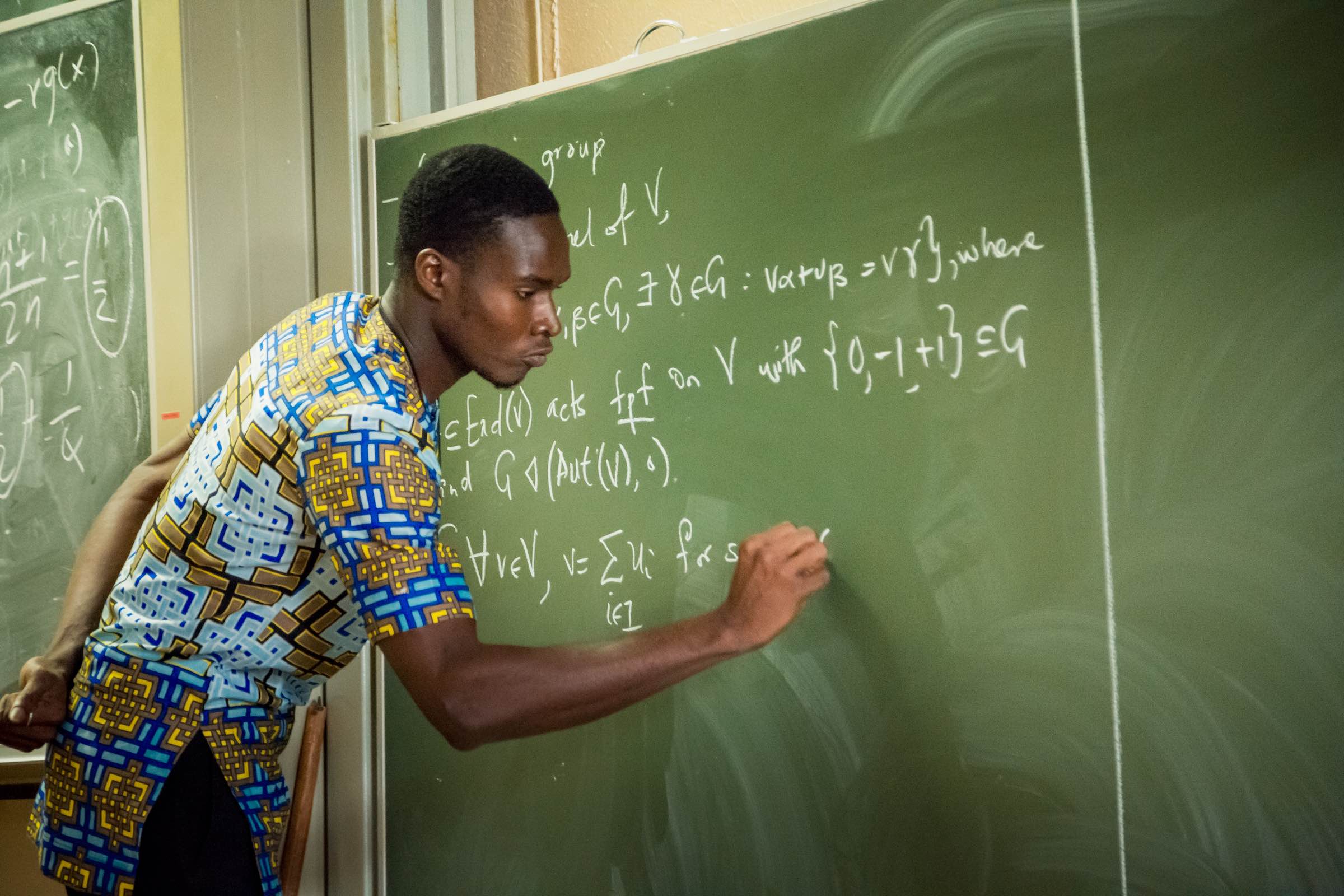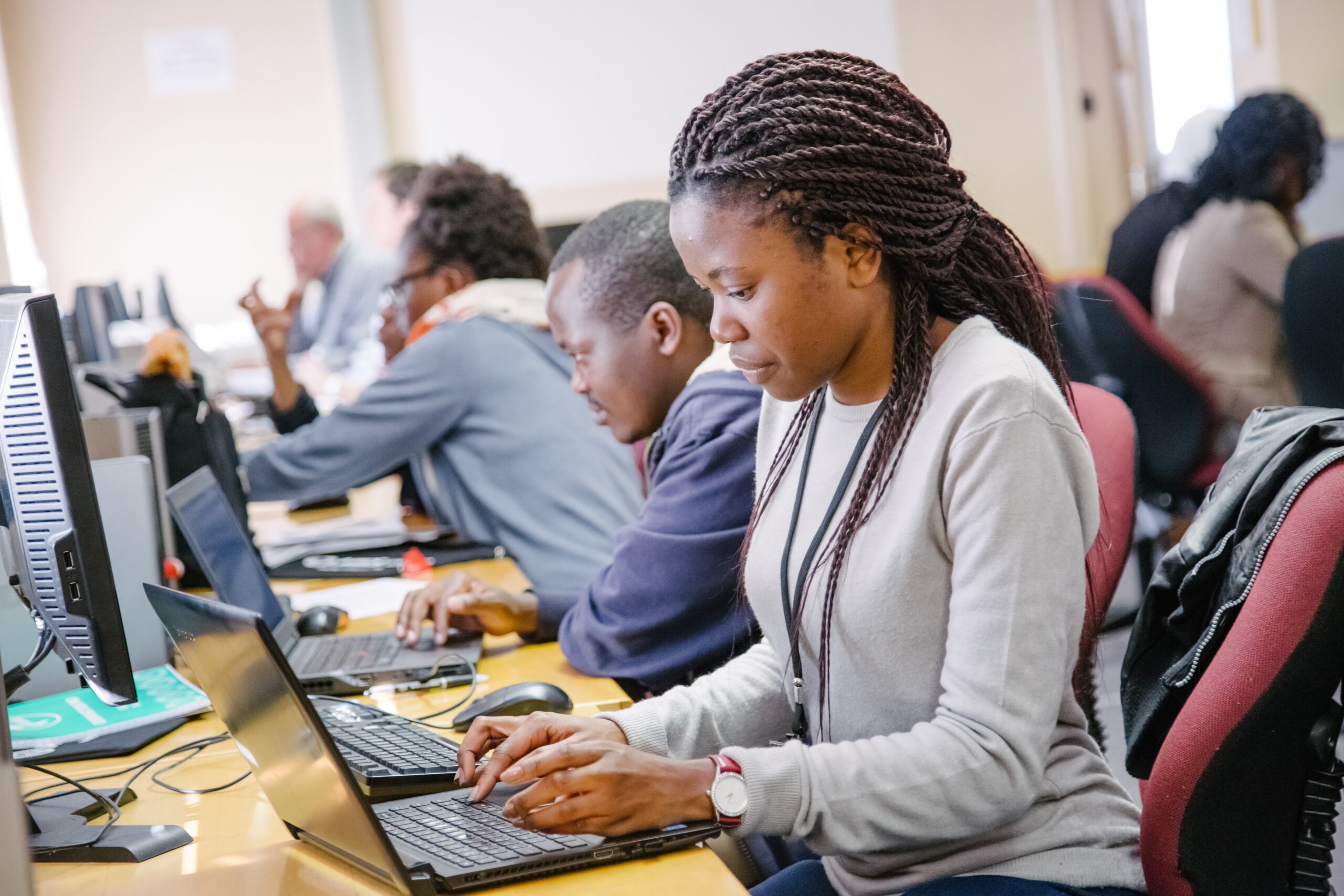
Master’s Course Proposals
Applications Open
This page allows you to submit a proposal for one or more courses which you would like to teach at any AIMS centre. There will be slight flexibility at each centre and some differences between centres’ exact programmes. Programmes are finalised in discussion with the director and/or curriculum committee at each centre.
Please read the following information carefully before proceeding to the application page
Closing date
The AIMS Structured Master’s in Mathematical Sciences Programme commences in September each year at all centres. AIMS South Africa offers a second intake commencing in January for South African students. Prospective lecturers are advised to submit proposals by 28 February for courses in the programme starting the following September (or January). Selection of courses will take place during March and April and all proposers will have been advised of the outcome in early June.
Course selection
As there are many more course proposals than available course slots, the submission of a course proposal does not guarantee automatic acceptance into the curriculum. The AIMS governing bodies reserve the right to actively recruit additional lecturers and schedule additional courses on an ad-hoc basis, in order to ensure a well-balanced course of the highest possible quality.
Master’s curriculum
After an introductory week, the curriculum for the AIMS Master’s in Mathematical Sciences is divided into three categories: skills courses and review courses followed by a research project (where no formal courses are taught). These run in parallel with some continuous communication and computing classes presented by AIMS staff during all phases. Proposals are solicited for the skills and review courses. Each course will consist of 30 hours contact time (10 per week), that is approximately 15 to 18 hours lecturing with additional time (12 to 15 hours) for discussion and practical/tutorial work.
Skills courses are designed to provide introductory and foundational material to the students, and are structured to achieve pre-defined outcomes, with little flexibility in their content. The time slots during which the skills courses will be taught are provisional as in the typical skills course programme at AIMS South Africa shown below. The order of these courses often varies. Exact dates could differ at the different AIMS centres.
| Mathematical Problem Solving | 27 Aug – 14 Sept |
| Scientific Computing with SciPy | 27 Aug – 14 Sept |
| Experimental Mathematics with Sage | 17 Sept – 5 Oct |
| Topics in the Mathematical Sciences:Probability and Statistics OR Topics in Analysis OR Combinatorics OR Algebra | 17 Sept – 5 Oct |
| Concepts in Physics and Physical Problem Solving | 8-26 Oct |
| Topics in Entrepreneurship and Professional Development | 8-26 Oct |

Review courses are fundamentally different in that they are designed to offer opportunities to teach on a wide range of topical issues. Lecturers thus have flexibility in designing their courses, subject to the guidelines set out below. Review courses will be taught from December through March in the time slots outlined below. The 3 courses in each time unit are usually balanced with respect to focus on mathematics, physics and interdisciplinary topics.
You will be given the opportunity to choose one or more time slots within which you would be prepared to teach your review course. The more time slots you are available for, the greater the chance of being selected.
During the review phase each student gives a presentation of 10 or 15 mins, with 5 mins of questions/discussion. Although the vehicle for the presentation is a topic related to the course, emphasis is on style (addressing the audience, clear slides, good selection of material, and fielding of questions, etc.). Together with briefer presentationsgiven in the skills course IT & LaTeX, this helps to prepare students for the oral defense at the end of the year.
Students book a presentation in a course with the lecturer, usually on the first day of the course (first come, first served). Sometimes they have an idea of what they want to talk about, in which case the lecturer need only make a note of the student name and topic (to give to the head tutor). But sometimes they have no idea of topic, only that they like the course area. In that case the leturer suggests a topic, with references. It may be to summarise a further topic in the course, or related material; or to present a proof omitted in the course. The topic is less important than the delivery.
On average each course attracts three presentations, which are usually scheduled in the last hour of the course (since that is least intrusive). In the middle week of the course the lecturer checks that the student is progressing with preparation for the presentation, and may listen to a practice.
During the Research project phase students work on a research topic with a supervisor.
AIMS encourages, but does not require, cooperation between local and international lecturers. The form therefore permits you to enter the email address of a co-lecturer. AIMS provides several teaching assistants throughout the year, but in some (rare) cases, lecturers may wish to bring an advanced masters or PhD student of theirs along to assist, e.g. with a particularly challenging practical or computational component of the course.
General guidelines on course content and style
The AIMS curriculum is extremely ambitious in attempting to provide students from very diverse backgrounds with excellent mathematics and computing research skills plus a broad overview of cutting-edge sciences, all within a very limited period.
Such an outcome is achievable only if full advantage is taken of the self-contained, residential nature of the AIMS institute which allows for greater contact time and interaction between students and lecturers than would normally be possible within a conventional university setting.
The intensive lectures-plus-tutorial-per-day format that is envisaged for AIMS courses implies that courses will have to cover fewer topics (as compared to normal graduate equivalents), and instead concentrate on covering fundamental results and techniques thoroughly in a participatory tutorial and problem-solving style.
Due to the diversity of students and topics, courses need to be highly student-centered i.e. unusually sensitive and responsive to the needs of the students. All courses should
- Be accessible to students with limited prior background, who may well need extra coaching especially in mathematics and physics. Lecturers will need to be willing to adjust the pace and content of the course as it proceeds, and should plan for this.
- Be challenging and interesting for students with excellent backgrounds. Enough material should be made available (for example in harder problems) to fully occupy better-prepared students. Additional evening mini-lectures on advanced topics will be encouraged.
- Include a set of mathematical problems which may be solved by students in sessions to be held each afternoon following the course lecture. During these sessions tutors will be available to handle questions, but lecturers should plan to use these sessions to advise and assist students. Informal interaction including ad-hoc follow-up lectures and tutorials, problem solving and computer lab sessions will also be strongly encouraged.
- Include one or more computer projects to be solved using Free Software, preferably SAGE, SciPy, or R. There are teaching assistants at AIMS who can assist a lecturer unfamiliar with these platforms. Please contact the AIMS IT Manager with any queries about other available software
In keeping with the above, the duties involved in teaching a course at AIMS will include
- lecturing the course
- being present to help with supervising the problem solving classes associated with your course, to be held each day after lunch, and assessing the students work in these sessions on a continuous basis
- helping us to choose computer projects relevant to your course and advising the resident lecturer assistants on how to implement those projects
Skills courses should
- provide a working knowledge of mathematics and physics at an honours (advanced undergraduate) level
- train students in problem solving using a wide range of mathematical and computing methods
Review courses should
- provide a broad overview of a major field of modern scientific research e.g. bio-informatics, fundamental physics, information, emphasizing the driving questions and reviewing exciting recent advances
- employ simple mathematical examples and problems throughout the course (i.e. there should be at least one such self-contained, worked mathematical example in every lecture) in order to maintain mathematics and mathematical methods as a unifying theme in the AIMS course as a whole; as far as possible, be relevant to the African research environment
For an indication of the scope and level of courses usually offered, view the previous year’s course pages of AIMS South Africa.
To submit a proposal please write to

